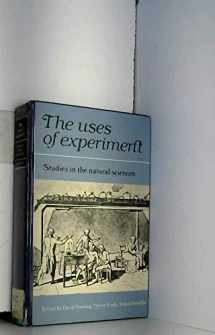
The Uses of Experiment: Studies in the Natural Sciences
Book details
Summary
Description
Experiment is widely regarded as the most distinctive feature of natural science and essential to the way scientists find out about the world. Yet there has been little study of the way scientists actually make and use experiments. The Uses of Experiment fills this gap in our knowledge about how science is practised. Presenting 14 original case studies of important and often famous experiments, the book asks the questions: What tools do experimenters use? How do scientists argue from experiments? What happens when an experiment is challenged? How do scientists check that their experiments are working? Are there differences between experiments in the physical sciences and technology? Leading scholars in the fields of history, sociology and philosophy of science consider topics such as the interaction of experiment; instruments and theory; accuracy and reliability as hallmarks of experiment in science and technology; realising new phenomena; the believability of experiments and the sort of knowledge they produce; and the wider contexts on which experimentalists draw to develop and win support for their work. Drawing on examples as diverse as Galilean mechanics, Victorian experiments on electricity, experiments on cloud formation, and testing of nuclear missiles, a new view of experiment emerges. This view emphasises that experiments always involve choice, tactics and strategy in persuading audiences that Nature resembles the picture experimenters create.


We would LOVE it if you could help us and other readers by reviewing the book
Book review



